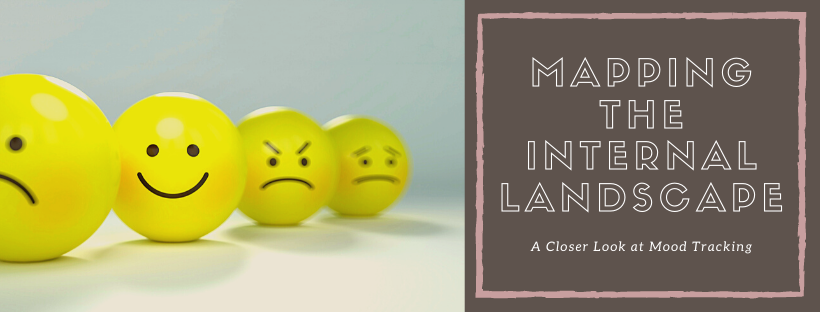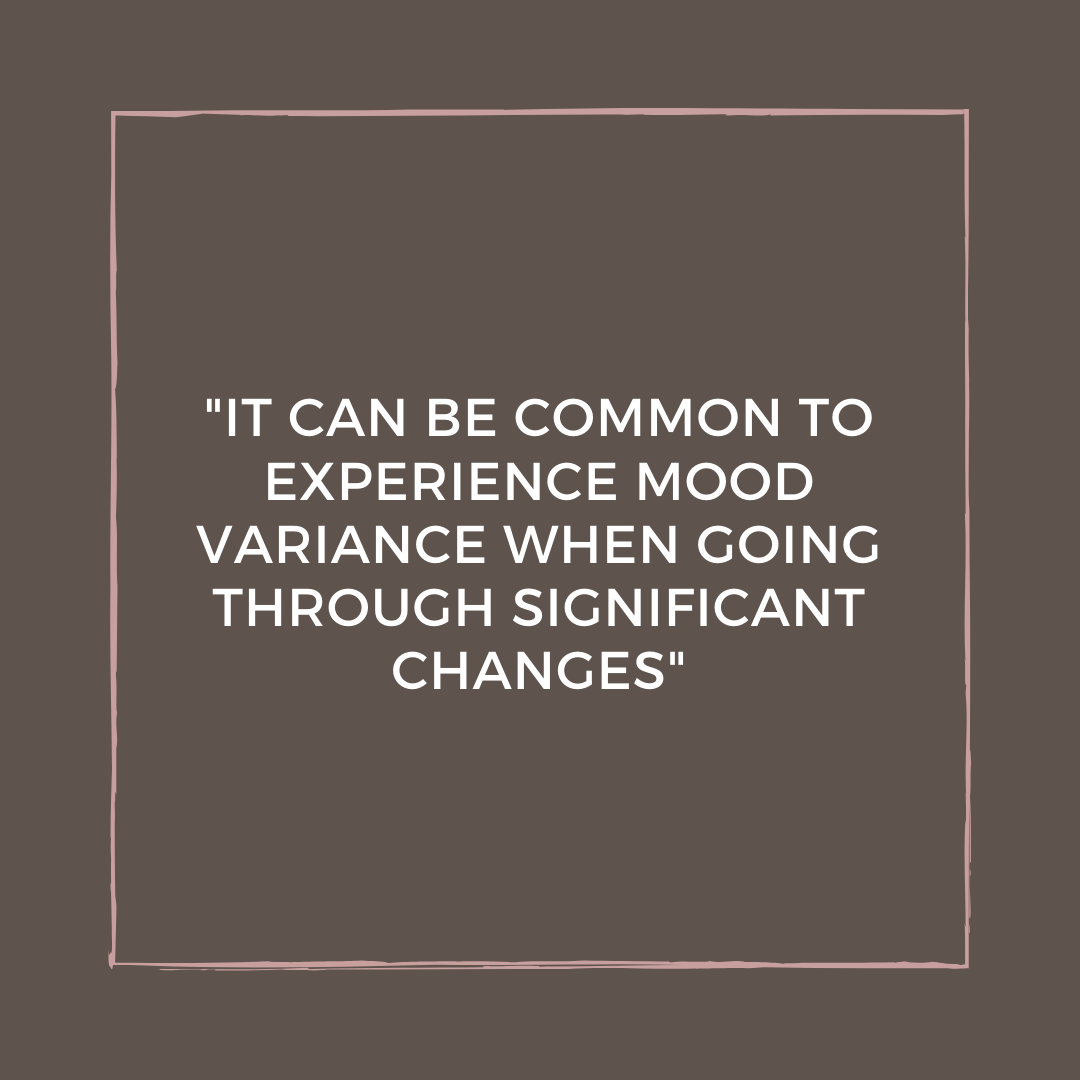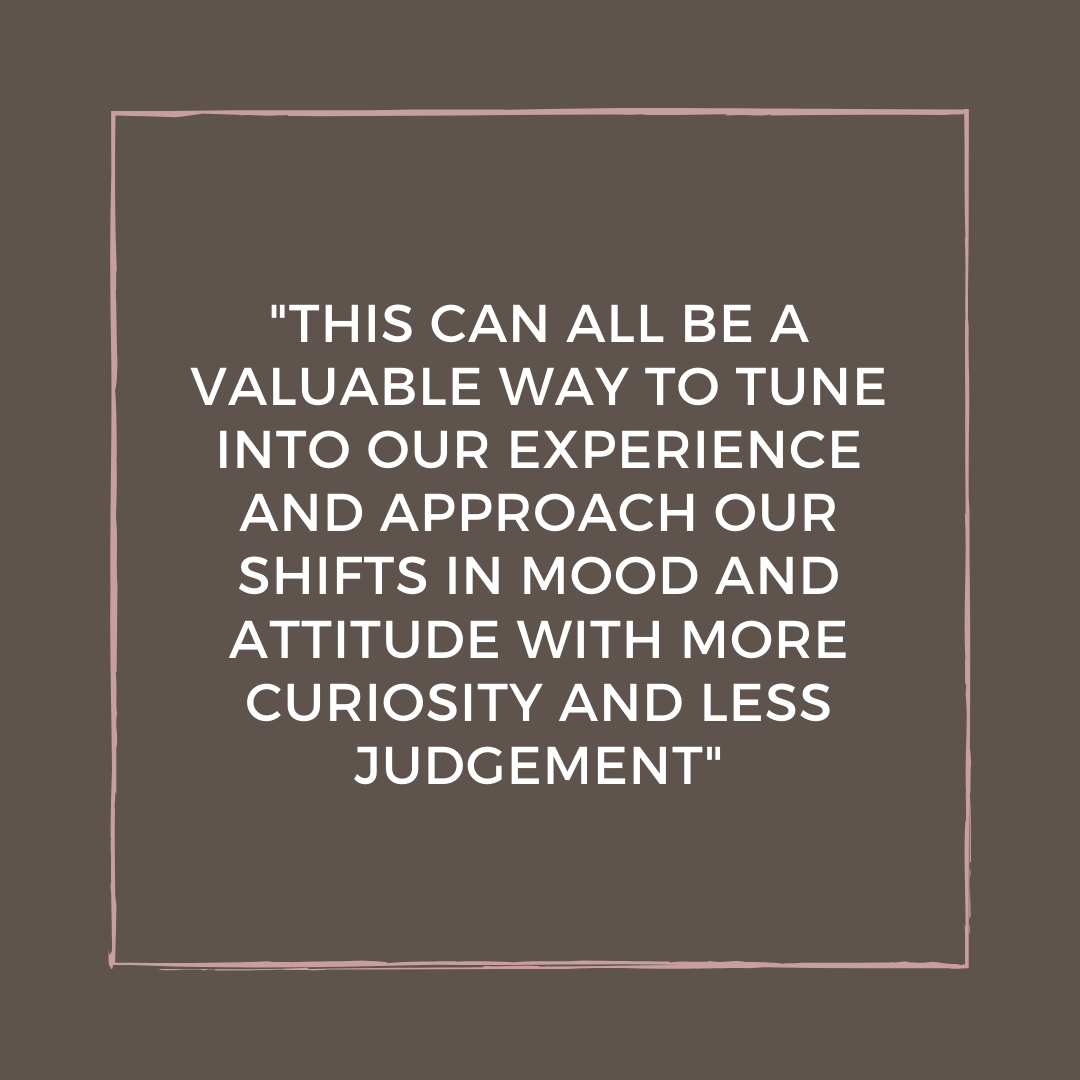|
Have your mood states been varying significantly from day to day or maybe even hour to hour? Do you find yourself happy and content one day, anxious the next, followed by a day of feeling anger or sadness? If so, you may be like many people right now. This fluctuation in mood is also something I hear described regularly in therapy. It can be common to experience mood variance when going through significant changes or in the wake of a loss or transition. While we are experiencing significant stress or feeling overwhelmed it can be tough to contact consistent mood states as we attempt to adjust to so much at once. In these moments it can make sense to seek professional help
the impermanent nature of our feelings, even the ones that convince us they are absolutely true and never leaving. Mood tracking can reveal patterns in our own behavior and how those patterns might correlate with other aspects of our daily life. For example, am I more angry on days when I’m participating in certain activities? Do I feel sadness following really enjoyable or positive experiences? Mood states don’t always follow patterns or a clear rhyme or reason so the more data we can gather about our experiences the better. Mood tracking can happen in a variety of ways, and I encourage finding a way that makes the most sense for you. In therapy sometimes we use worksheets or tracking logs to This can all be a valuable way to tune into our experience and approach our shifts in mood and attitude with more curiosity and less judgement. I realize that even with many helpful resources and coping strategies at my disposal my mood state is not entirely in my control and especially not during times of crisis when so many things are up in the air and uncertain. How mood tracking can be beneficial:
How do I track my mood?
A note on my own mood in the wake of COVID-19: Mood shifts are common enough but during current world circumstances mood shifts might be experienced more often or with more intensity. As I track my own mood I recognized
0 Comments
As a professional counselor I often work with people who’s lives have been put on hold because of tragedy and abrupt life changes. I recognize some of the symptoms we are all experiencing in light of this global pandemic and have some suggestions about finding the value in seeking shelter currently as well as finding a way forward eventually.In so many ways what we are experiencing now in relation to the COVID-19 virus is unprecedented and unfamiliar. For that reason many may be experiencing challenges coping as the entire world seems to be stunned or scrambling to regain some sense of normalcy and control. And while I’ve done plenty of reflecting on how this is unprecedented and I’ve listened to and validated the experiences of so many other people who are confused and caught off guard by the state of the world right now, I can’t help but think that we’ve been here before in some important and potentially useful ways.
powerful tool in unlocking lessons from past experiences and hearing our internal guidance begin to suggest potential paths forward. So, while this is a brand new experience in terms of the pandemic, I also recognize what’s happening from what I’ve seen and experienced before. Here are a couple questions that may prompt your own awareness around what is happening:
Here are a few reasons why it might make sense to shelter in place following a jarring life experience:
experience fear, sadness, or anger it is often in relation to something we care deeply about. Asking 'what is it I care deeply about' instead of trying to ignore or eliminate the feelings can assist in clarifying personal values. (Bonus Option) We can use our time sheltering in place to step out of the expert role for a while. Not knowing can be terrifying and unsettling but it is often the state we find ourselves in during crisis. While we long for understanding over the events in our lives and how the world around us operates, it can be exhausting to maintain the
with stepping out of the expert role regularly in order to listen to others more effectively and can also assist others in learning how to leave behind the expert role for a while to contact relief and acceptance. **Fun Fact: Real life experts actually follow a curve of development explained by the Dunning-Kruger effect which highlights that confidence in our own understanding diminishes as we learn more about anything because we realize how little we will ever know about significant subjects no matter how much time we invest in learning. *Research Dunning-Kruger Effect for more information* Because we’ve been sheltering in place for a while now some of us are anxious to get back, some of us are cautious about going back, and some are still completely confused about what it might mean to return to engaging with the world. All of these reactions are common when attempting to rebound from jarring life experiences. Regardless of how we find our way through this current jarring event one thing is true; this particular crisis will eventually pass and we will begin again in some form after sheltering in place concludes. It is possible to get stuck for longer than necessary in the shelter in place reaction to crisis and it may be worth a conversation (and another post to come) about how to move forward again once it’s safe to do so. For now, we may choose to pause and determine the value and utility of sheltering in place since so many of us have been asked to do so. If aspects of your life have been put on hold by a jarring experience and you are hoping to clarify your personal values, find support while sheltering in place, or would like to clarify the meaning of the experience and how it might be impacting you, I’m here to help. You can find more information about me through my website: www.andrewtaegel.com or reach out by phone: (573) 544-0303. |
AuthorI am a therapist in private practice working to assist those struggling with self-doubt, guilt/shame, addiction, anxiety, depression, and grief to decreasing the struggle with internal distress and commit to actions that move them closer to the things they value most. Archives
September 2020
Categories
All
|





 RSS Feed
RSS Feed